

BIL AWAL ENDORSES ‘USE OF FORCE’ AGAINST OPPOSITION TO BRING POLITICAL STABILIT Y
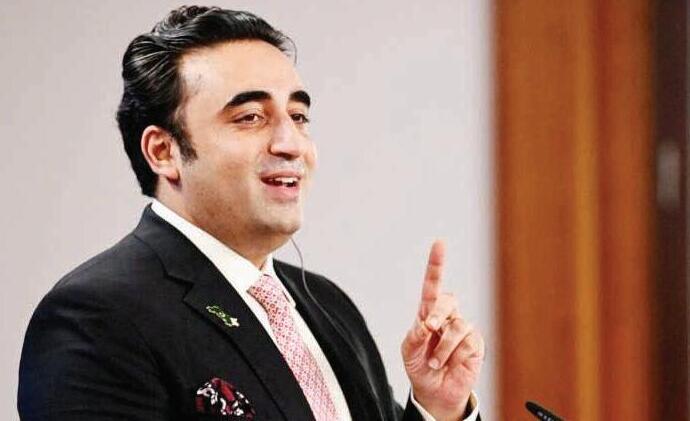
CH A I R M A N of the Pakistan Peoples Party (PPP) Bilawal Bhutto Zardari on Saturday called for political stability in Pakistan, whether it requires “dialogue between the government and opposition or the use of force”
Speaking at a rally marking the PPP s 57th founding anniversary in Sukkur Bhutto highlighted that achieving peace and economic stability in Pakistan required national consensus, underlining that political differences must not hinder the country’s progress
“Political stability is essential for the country s future whether achieved through dialogue or if necessary through firm measures, Bhutto stated He also called for a new National Action
(NAP) to combat terrorism, recognising the country’s urgent need to ad-
Bilawal Bhutto urged all political parties and activists to strive for democracy and the supremacy of the constitution in the country, as other issues can only be addressed after achieving political stability He emphasized that the opposition plays a crucial role in ensuring political stability as they are not presenting themselves as a democratic and political opposition Critisizing PTI for protest and making choas in Islamabad, he mentioned that some political parties in Pakistan are not practicing politics within the political framework The events of May 9 and what happened in Islamabad are not politics Politicians must engage in political processes to limit the role of institutions to their constitutional boundaries
Bilawal added that politicians should
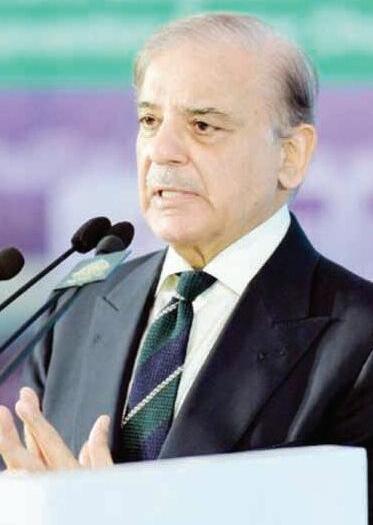
resolve issues through dialogue It is his desire that both the government and opposition work together to establish political stability in the country with the government bearing more responsibility in this regard He stated that some opposition parties want to engage in political opposition, while others adopt an anti-political and undemocratic approach The opposition adopting a democratic and politi-
of marginalized groups particularly adolescent girls and young women who face heightened risks of HIV infection PM reaffirms
cal stance should be responded to accordingly If the opposition continues with an undemocratic stance the government will respond in the same manner
Bilawal emphasized that they always advocate for negotiations and dialogue but the opposition parties are seeking talks with the establishment rather than with political parties If this approach to politics continues both PTI and the country will suffer
Deputy Prime Minister and Foreign Minister Ishaq Dar on Saturday strongly refuted allegations of state brutality and




November 28, compared to the corresponding week of the previous year, according to the latest data released by the Pakistan Bureau of Statistics (PBS) The SPI index for combined consumption groups decreased by 0 03% compared to the previous week falling from 324 11 points to 324 00 points The SPI which uses the 2015-16 base year covers 17 urban centres and monitors the prices of 51 essential items for various expenditure groups For the lowest consumption group (income up to Rs17 732) the SPI increased by 0 06% rising to 318 60 points from 318 40 points For income groups between Rs17 732 and Rs22 888 inflation increased by 0 02% while it remained unchanged for the Rs22,889–29,517 income group However, for higher income groups (Rs29,518–44,175 and above Rs44,175), the SPI decreased by 0 02% and 0 06%, respectively Out of the 51 monitored items, prices for 12 items (23 53%) increased nine items (17 65%) decreased and 30 items (58 82%) remained stable during the week The prices of key items that recorded
a weekly decrease included chicken (-3 78%), tomatoes (-2 23%), pulse gram (-1 60%), pulse masoor (-1 38%), rice basmati broken (-1 15%), gur (-0 59%), pulse mash (-0 53%) and pulse moong (-0 25%) Conversely items with a notable increase in weekly prices included potatoes (+3 34%) garlic (+1 69%) bananas (+1 13%) vegetable ghee (2 5 kg +0 99%), vegetable ghee (1 kg, +0 93%), mustard oil (+0 91%), cooking oil (5 litres, +0 77%), eggs (+0 65%), washing soap (+0 53%), and LPG (+0 20%) On a YoY basis, items showing significant price decreases included wheat flour (-35 17%) chilies powder (-20 00%) diesel (-13 92%) petrol (-11 64%) Lipton tea (-9 91%) rice basmati broken (-9 37%) pulse masoor (-9 14%) bread (-5 99%) electricity charges for Q1 (-5 07%), cooking oil (5
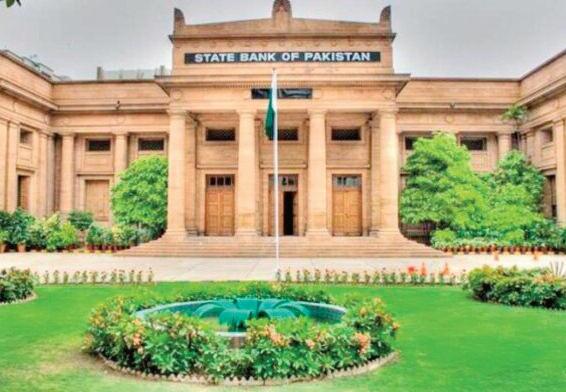

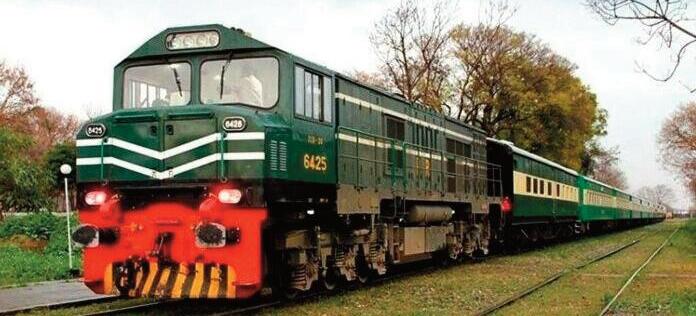
ikTok and Meta criticize Australia’s rushed under-16 social media ban
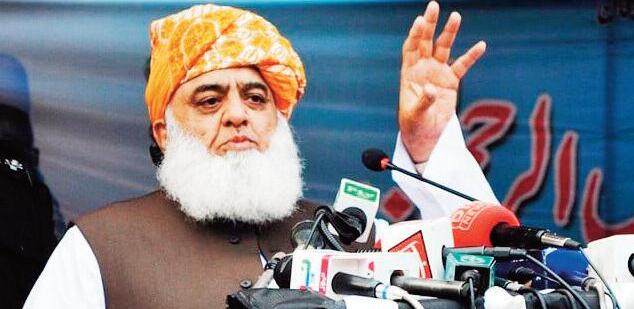
The Election Commission of Pakistan (ECP) on Friday issued the schedule for by-election in the NA-262 constituency in Quetta
According to a notification issued by the ECP, the by-election in the NA-262 (1) constituency will be held on January 16, 2025 This National Assembly seat fell vacant after the ECP withdrew the notification of Adil Khan Bazai’s victory in the election Bazai is a leader of the Pakistan Tehreek-e-Insaf (PTI) but he contested the General Election of February 8, 2024, from this constituency as an independent candidate and won the election Later he joined the Pakistan Muslim League-Nawaz (PML-N) allegedly under pressure from certain quarters
with Mian Masood Ahmed, the custodian of Darbar-e-Aliya Deenpur Sharif On the release of PTI's founding leader Imran Khan he stated that the decision rests with the courts stressing the importance of judicial independence in such matters JUI head reiterated that the government must resign, as it lacks the moral and political grounds to continue in power ECP ANNOUNCES DATE FOR BY-ELECTION
Naran, Babusar top closed for tourists amid heav y snowfall


COMMENT
Power price problems
Renegotiating the PPAs with the IPPs has not brought the consumer relief
TO hear Power Minister Awais Leghari one would think that relief for the consumer was round the corner with Independent Power Producers signing fresh Power Purchase Agreements one after another He disclosed that five agreements had been terminated, and talks were going on with 16 others However, Mr Leghari did not mention that termination had meant loss of trust in the Pakistan government’s sovereign guarantees among foreign investors That had meant that bidders had held back in the bidding for PIA recently with the result that one bidder made a bid which was a fraction of the reserve price With the IMF also insisting on the privatization of the WAPDA distribution companies, loss of confidence in the government by large investors is going to have negative repercussions for that process It will meant that not only will the government have to pay the bill for losses it will also have to bear the wrath of the IMF which it is not inclined to do The loss of confidence among foreign investors might be balanced against relief to the consumer, especially when one looks at the voting power of the latter But that relief has not so far been forthcoming So what is the point of the whole exercise?
Mr Leghari s recounting of the negotiations he is conducting should make any observer horrified Apparently the files show over invoicing on equipment used to set up the IPPs Even on that inflated capital the payback in profits and dividends had repaid the investment on many IPPs in two to four years Another point of approach is the cost allowed on power projects elsewhere, which were much lower than the costs allowed here The differential is so high that there is no question that kickbacks were not involved If there is no accountability what is to prevent repetition? Though the renegotiation process is uncovering a can of worms there is no sign that anyone is to face the music IPPs may claim that they are negotiating new agreements and should be spared, but the argument of a closed and settled transaction, replaced by a fresh one, does not apply to Power Division officials of the time and their political masters If they had done their job honestly this situation could have been voided The argument that the country needed power urgently should not be applied to corruption

Dedicated to the legac y of late Hameed Nizami Arif Nizami (Late) Founding Editor
M A Niazi Editor Pakistan Today Babar Nizami Editor Profit
PTI’s Final Call Fiasco
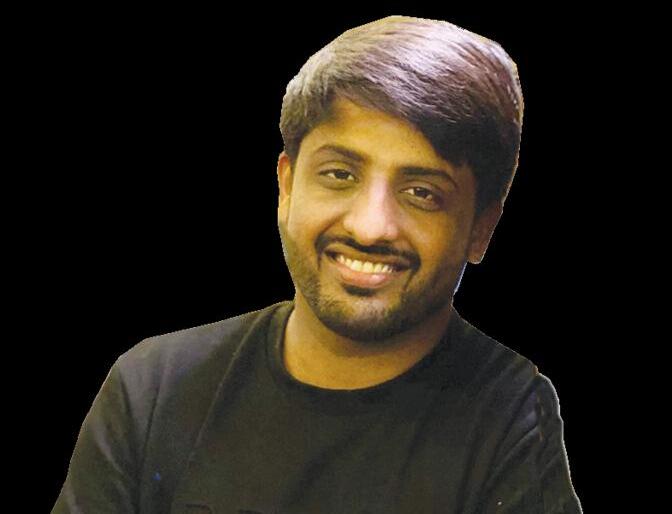
The role of Bushra Bibi and the PTI's desperate tactics

THE recent debacle of the PTI during its socalled Final Call protests has left the party scrambling for a way out of its growing political humiliation Amid dwindling public support and mounting political pressure, the PTI has resorted to increasingly dubious tactics in an attempt to recover its lost ground with founder Chairman Bushra Bibi now at the heart of the party s desperate efforts When the PTI first launched the Final Call campaign, it attempted to create a narrative of an unstoppable movement led by its fearless leadership The idea was to showcase a show of strength with PTI leaders standing defiantly at D-Chowk braving the might of law enforcement agencies The party attempted to portray its leadership as unyielding in the face of adversity hoping to rally its base around a narrative of sacrifice and resistance However, as the protest unfolded, reality quickly shattered this carefully curated image Neither Bushra Bibi nor key PTI figures like Ali Amin Gandapur were anywhere near the protest site Bushra Bibi who has been a key behind-the-scenes figure in PTI s strategy was nowhere to be seen and her absence at the protest was conspicuously ignored by party leaders, who quickly shifted focus to more sensational claims In an attempt to salvage the situation and whip up sympathy PTI’s social media machinery began spreading a claim that more than 30 protesters had been shot dead by Rangers allegedly in a crackdown The claim seemed designed to create a dramatic narrative of PTI s martyrdom positioning the party as the victim of an oppressive state However, once again, PTI’s narrative fell apart under scrutiny No evidence emerged to substantiate these claims In fact reports and investigations into the incident revealed that the supposed casualties were either exaggerated or completely fabricated with no bodies or hospital records to back up the story The hoax backfired, leaving the PTI with even less credibility
But the party, desperate for a way to turn the narrative in its favor, resorted to yet another bold move this time involving Bushra Bibi’s sister Mariam Riaz Wattoo Appearing on a popular talk show Wattoo claimed that Bushra Bibi had been mysteriously moved from one location to another under circumstances that were unclear, even insinuating that the former First Lady's safety might be in jeopardy The timing of this statement raised eyebrows It was as if the PTI was preparing the public for possibility of a sensational new story one that would paint Bushra
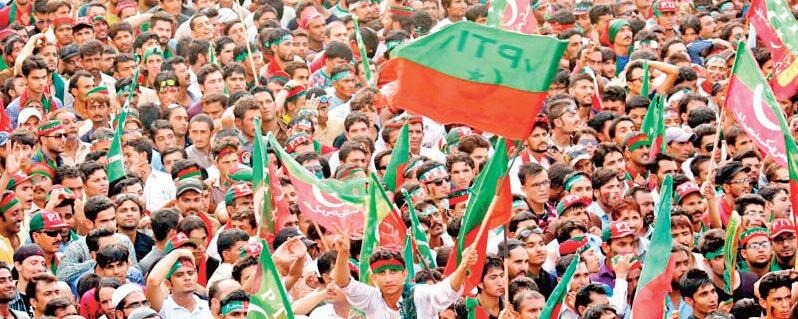
victim of some grand political conspiracy or worse a potential target of political elimination The narrative being spun around Bushra Bibi s supposed disappearance or mysterious relocation is a desperate attempt by PTI to shift focus away from the party's glaring failures The PTI is clearly hoping to make Bushra Bibi the central figure in its ongoing political drama, framing her as a symbol of victimhood and martyrdom in the face of an oppressive establishment But this tactic like the others is as shallow as

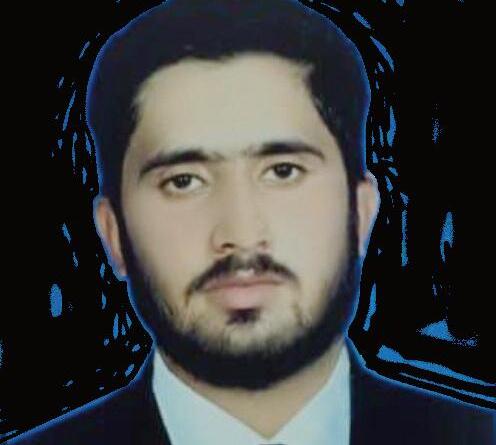
to Pakistan Moreover the resignation of Sheikh Hasina, Bangladesh s long-serving Prime Minister, following a revolutionary mass uprising, raises questions about the future trajectory of Dhaka’s relationship with New Delhi Her administration had been pro-Indian forging strategic alignments that benefitted India s security and geopolitical interests in the region However, the positive gestures from Bangladesh s interim government and the public now raise concerns about India's influence in the region India is closely monitoring the upcoming elections in Bangladesh as they will determine whether the country aligns more closely with India or Pakistan The Bangladesh National Party which has historically been critical of New Delhi, has emerged as a significant political force following the fall of the Awami League These developments have led to an unofficial political consensus in New Delhi that
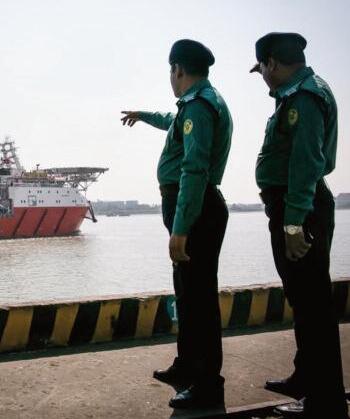
gional trade remains underutilized It demonstrates a desire to set aside historical grievances in favour of a mutually beneficial relationship building trust between two nations previously torn apart by war The positive gestures from the Bangladeshi public, such as Professor Shahiduzzaman s proposal for a Nuclear Treaty with Pakistan and Samsuddin’s suggestion to rename Bangabandhu Avenue, will have a significant impact on the future of bilateral relations Amid all these developments this partnership should be viewed as a priority as Islamabad too stands to benefit from this new relationship and from countering India s proxy influence in the region
Rethink, reduce, recycle
through a revolutionary movement and regime change In October the interim government led by Nobel Laureate Muhammad Yunus lifted a mandatory physical inspection requirement for Pakistani ships, signaling a positive shift towards trustbuilding and better future relations In a meeting with Prime Minister Shehbaz Sharif at the UN General Assembly in New York in September Yunus emphasized the need to revitalize bilateral connectivity In parallel the positive reception by the Bangladeshi public is also contributing to the renewal of ties For example, on September 11, Dhaka hosted an event commemorating the 76th death anniversary of Quaid-e-Azam Muhammad Ali Jinnah The ceremony displayed banners bearing the Quaid s motto Unity Faith and Discipline Further demonstrating this shift, Muhammad Samsuddin, a speaker at the event, proposed that Bangabandhu Avenue be renamed Jinnah Avenue, reflecting a change made after the 1971 Liberation War Additionally Professor Shahiduzzaman of Dhaka University called for a Nuclear Treaty between Bangladesh and Pakistan citing concerns over India s growing influence in the region and suggesting that Pakistan s Ghauri missiles be stationed in Bangladesh These instances suggest a potential shift in Bangladesh’s alignment from India
Modi’s visit to Bangladesh in 2021 Despite these challenges, Bangladesh’s shift toward Islamabad could reduce its reliance on third-party ports and overland routes benefiting both nations through direct maritime connectivity This strategic shift has regional implications, potentially paving the way for broader collaboration within SAARC, where intra-re-
In an era of shifting global alliances, this collaboration could serve as a counterbalance to the growing influence of other regional players like China This initiative could inspire other nations in South Asia to prioritize complex interdependence over political divisions, demonstrating how pragmatic diplomacy can overcome historical grievances and advance the shared interests of nations
The writer can be reached at sajjadaleememon19@gmail com
Restoring peace to Tirah
Safet y star ts with rules
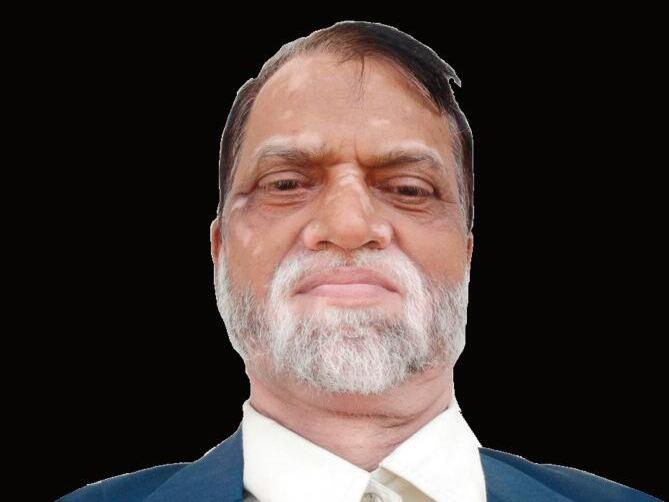
SProvide trauma-informed care and gender-sensitive counselling Addressing Underlying Issues: Economic em-
Communities

Impacts of Women Suicide: Family and Social and Beyond
that must be tackled
powerment: Promote programs that improve women s financial independence Legal protections: Strengthen laws against domestic violence and sexual harassment Healthcare access: Ensure women have access to affordable mental and physical healthcare Building Support Networks: Peer support groups: Foster safe spaces where women can share experiences and find solidarity Family education: Teach family members to recognize warning signs and provide support c Recognizing Warning Signs: Family, friends and colleagues can help by identifying behaviors such as: Expressions of hopelessness or feeling like a burden Withdrawal from social interactions Sudden mood changes or increased risk-taking Giving away possessions or saying goodbyes d Crisis Intervention: Encourage open dialogue and active listening without judgment Avoid dismissing her feelings or providing oversimplified solutions Guide her to professional help and stay with her until she connects with someone who can assist e Global and Local Campaigns: UN and WHO initiatives: Advocate for women's mental health globally Local NGOs and community efforts: Support organizations working on women’s safety and empowerment The causes of suicide in women are often multifaceted involving a combination of psychological, social, biological, and environmental factors Women may face unique stressors that can contribute to suicidal thoughts or behaviour a Psychological Factors: Mental health disorders: Depression anxiety and bipolar disorder are significant contributors Postpartum depression and other reproductiverelated mood disorders Trauma and PTSD: Often related to past abuse, violence, or loss
Low self-esteem: Cultural or societal pressures can lead to feelings of inadequacy
Chronic stress: Long-term exposure to high
stress can overwhelm coping mechanisms b Social and Cultural Factors: Gender-based violence: Domestic violence, sexual assault, and harassment are major contributors Relationship issues: Intimate partner conflicts or breakdowns Emotional abuse or lack of support in close relationships Societal expectations: Pressure to conform to traditional roles (e g as a mother wife or caregiver) Stigma around mental health or seeking help Isolation: Loneliness or a lack of strong social support networks c Biological Factors: Hormonal fluctuations: Linked to pregnancy menopause or menstrual cycles which can exacerbate mood disorders Chronic health conditions: Illnesses like cancer, chronic pain, or au-

chological Effects: Grief and Trauma: Family members often experience intense feelings of sadness guilt anger and confusion Guilt and Self-Blame: Relatives may question if they missed warning signs or could have intervened Mental Health Issues: Depression, anxiety, and PTSD are common among those close to the deceased Effects on Children: Emotional Distress: Children may struggle to process the loss and feel abandoned or responsible Behavioral Changes: Academic performance social interactions and general behavior can deteriorate Long-term Impact: Increased risk of mental health issues and even suicidal ideation in children who lose a mother to suicide Relationship Strains: Conflict: Family members may blame one another or experience tension due to differing ways of grieving Loss of a Caregiver: If the woman was a primary caregiver, her absence can disrupt family routines and create significant caregiving challenges Economic Strain: Financial Impact: If the woman contributed to household income her loss can lead to financial instability Cost of Support Services: Families may face expenses related to therapy, childcare, or legal matters following her death b Social and Community Impact: Stigma and Isolation:
How Europe’s great

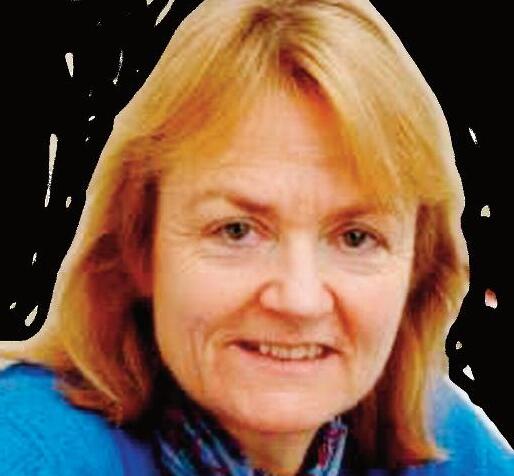
"ONLY once in a century does one host Olympic and Paralympic Games only once in a millennium does one rebuild a cathedral declared French President Emmanuel Macron in his 2024 New Year speech On 8 December, all eyes will turn once more to France s iconic landmark Notre-Dame de Paris as it officially reopens to the public following the fire of April 2019 that nearly destroyed it How have the French succeeded in completing what had seemed like mission impossible this gargantuan task on time and on budget within the five years that Macron first promised on that fateful night of 15 April? The answer is the same as throughout history Money and leadership are essential, but the most important thing of all in any prestige building project is the quality of the labour Top people work fast and produce top results Mediocre craftsmen no matter how much time they are given can only ever produce mediocre results
A t t h e N o t r e - D a m e r e b
s taken by the leadership to cast far and wide for the absolute creme de la creme of craftsmen, wherever they were to be found As a result, among the 250 companies and hundreds of engineers masons carpenters stained glass specialists and other professionals enl i s t e d t o w o r k o n t h e
p
o p l e from all over the world The master carpenters for example, working to recreate the wooden beams of the cathedral s roof trusses, were from the United States, the UK, Spain, Denmark, Bosnia and India, as well as France They included Christians, Jews, Hindus and Muslims all chosen because of their high level of skill in using the traditional medieval methods of craftsmanship skills now in retreat under the onslaught of computer precision mass production and the relentless advance of industrial technology DEEP UNDERSTANDING OF GEOMETRY When Europe’s great cathedrals were built over a
thousand years ago they too were at the forefront of science Their size their height and their sheer complexity were the very embodiment of the latest engineering technology Nothing comparable had been seen on the European continent before except in modern Spain and Portugal, where Arab Muslims, originally from Syria, had been ruling for nearly 800 years, and in Sicily, where Arab Muslims originally from Egypt and North Africa had been ruling for over 250 years In both the caliphate of Cordoba and the emirate of Sicily the construction world was dominated by Arab Muslim structural engineers and craftsmen, men who were both literate and numerate, unlike their European Christian counterparts These men had a deep understanding of geometry, building stresses and vaulting techniques knowledge that had been widespread across the Islamic world since the eighth and ninth centuries when the great Bayt alHikma (House of Wisdom) centre of learning in Baghdad was at its peak It is no accident that the first stone vaulted structures appeared in Latin Christendom just 10 years after the fall of Toledo, where the 10th-century ribbed vaulted mosque dome of Bab al-Mardum - today the church of Cristo de la Luz - is still extant and visitable Likewise in Pisa where there was no pre-existing local building tradition or school of architecture Pisa Cathedral (1064) and then the Leaning Tower appeared suddenly on Italian soil soon after the Pisans successful military campaigns against the Arab rulers in Sicily Pisa’s original cathedral dome was supported on Islamic-style squinches and slender pointed-arch windows while the engineering challenges of the tower would have required advanced geometrical knowledge - the famous lean is the result of subsidence, not faulty construction ADVANCED GEOMETRICAL KNOWLEDGE
More proof of Arab involvement in church building comes in the Arabic numerals, with their distinctive cursive shapes carved as assembly marks found by chance in the roof timbers at Salisbury Cathedral (1220s) during a dendrochronology study sponsored by English Heritage They were also an accidental find carved as position markers on the stone sculptures, on the famous Wells Cathedral West Front (1175)
Since English craftsmen at that time could only manage the simple straight lines of Roman numerals and Arabic numerals did not enter general use in Britain till several centuries later in the 1500s the carpenters and masons employing them as early as the 12th and 13th centuries were clearly highly educated foreigners, brought in by wealthy bishops and abbots keen to sponsor the absolute top level of construction money could buy At Wells Cathedral, construction was halted when the funds allocated for the building were diverted following the death of the bishop to pay the huge litigation
Targeting mosques
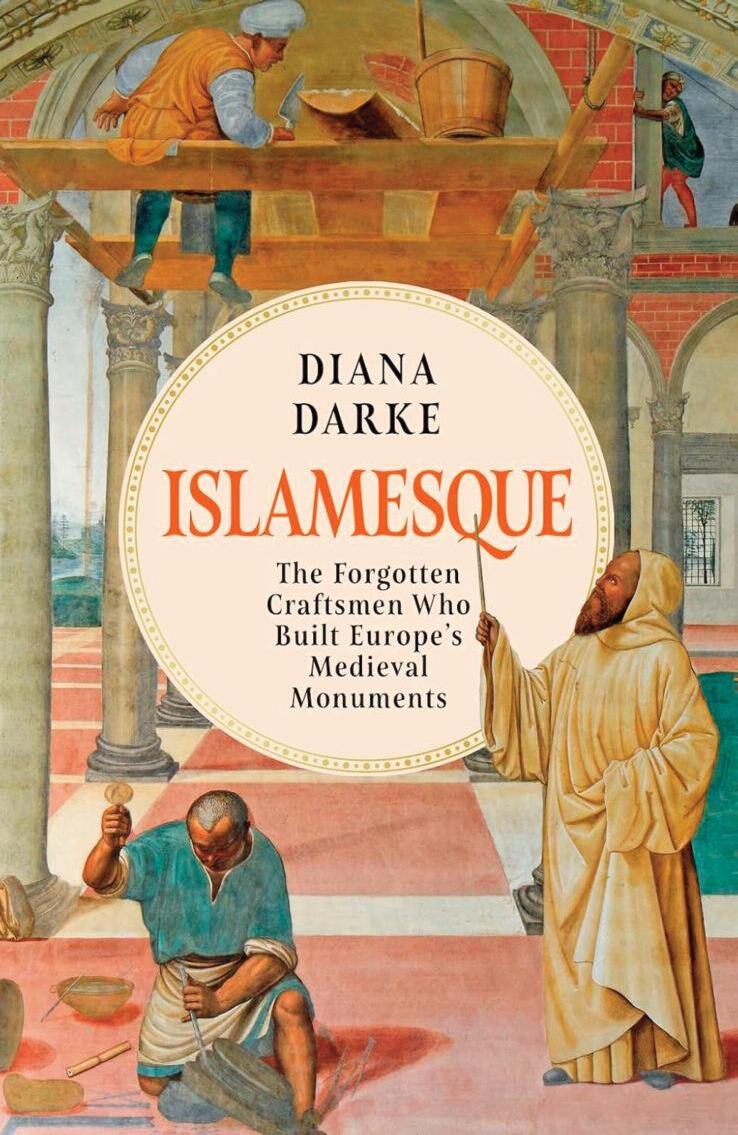
costs between rival claimants to his bishopric of a court case in Rome at the papal curia The masons no longer being paid simply marked up their final sculptures with Arabic numbers to indicate their correct niches on the West Front then moved on to their next commission
When the dispute was finally resolved 15 years later, local masons were the only ones on the scene to erect the sculptures To them, the Arabic symbols were just incomprehensible hieroglyphs, so they put them in the wrong niches even adjusting the niches to make them fit Researchers in the most recent restoration have now established that had the sculptures been put back in accordance with their original Arabic sequencing they would have fitted perfectly SOPHISTICATED SOCIETY
The masons’ marks on display on the back wall of the Cordoba Mezquita are overwhelmingly Arab names written in Arabic script showing how the 10th-century craftsmen were literate centuries ahead of their European Christian counterparts They were the products of a sophisticated society where learning was encouraged by the ruler and enjoyed by all, thanks to free education offered by mosque schools In Christian Europe, only the clergy and a handful of the upper classes could read and write Names in themselves can be misleading In the town of Corleone for example inland from Palermo there were Christians called Muhammad Abdullah Ahmad and Ali living alongside Muslims with Greek names, who could pass for Sicilian Christians Donation records in Greek during the Norman period in Sicily use phrases like Roger who was once called Ahmad", showing how local Muslims adapted their names to fit in better to the new environment and new masters, just as foreign workers arriving in Britain today might adapt their names or be given nicknames that are easier to remember and pronounce Jews have done the same thing across Europe and America for centuries When the names of craftsmen first started to appear in the Latin chronicles, like William of Sens, thought to have worked on Notre-Dame, and much vaunted for introducing six-part rib vaulting to England at Canterbury Cathedral in 1174-77 we cannot assume he was Christian He


MORE THAN 122,000 PEOPLE EVACUATED IN MAL AYSIA AFTER FLOODS

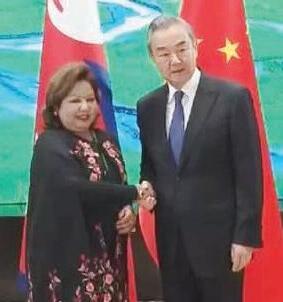





CORPORATE CORNER
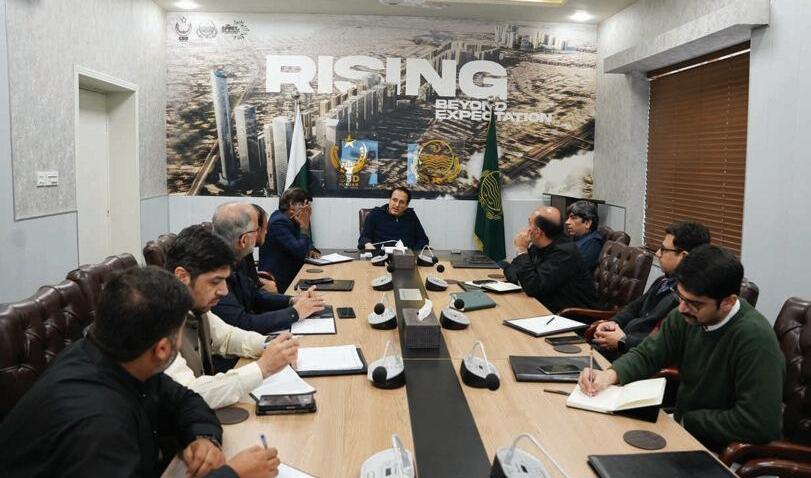
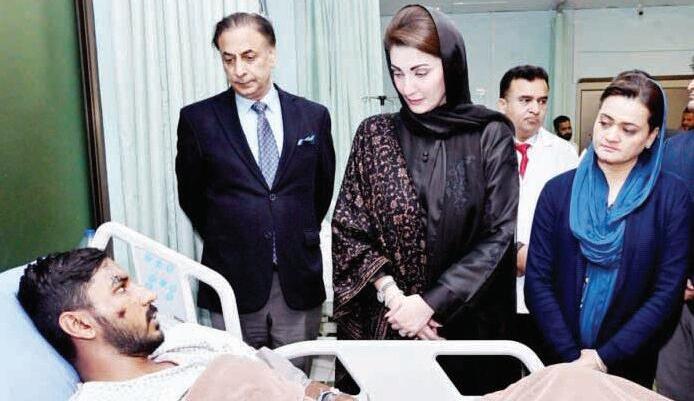
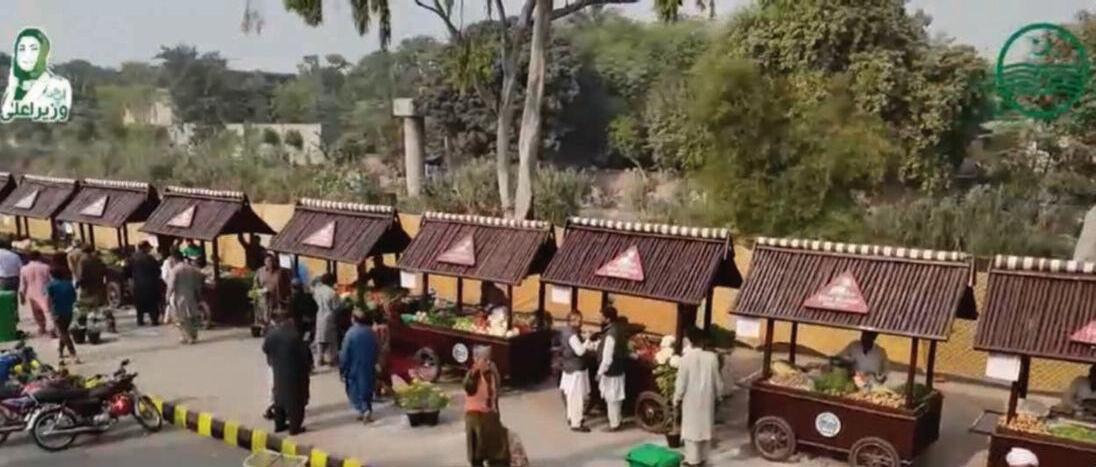
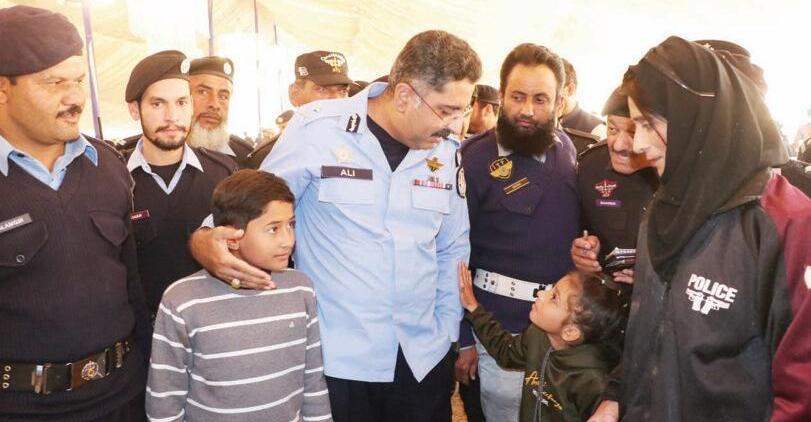


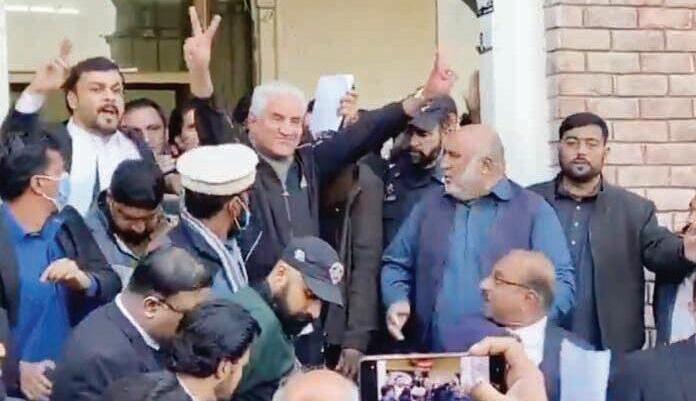
Former federal minister Fawad
Chaudhry has issued a stern warning about the escalating political crisis in Pakistan, stating that if the current tensions are not defused, the situation could devolve into widespread violence In a statement, the former PTI leader blast Prime Minister Shahbaz Sharif s recent speech as foolish and denounced the Punjab government s media campaign against Khyber Pakhtunkhwa as absurd He expressed concern that the provocative rhetoric from both sides including speeches in the
Pakhtunkhwa Assembly, could lead the country into a dangerous conflict
Chaudhry stressed the need for immediate dialogue to de-escalate the situation urging that the political temperature must be lowered to prevent further destabilization If the temperature is not brought down, this political crisis could turn into a regular fight ” he cautioned calling for talks to resume as soon as possible
Meanwhile in a bold response Khyber Pakhtunkhwa s Chief Minister Ali Amin Gandapur lashed out at the federal government, stating that the province would not be intimidated by the threat of Governor ’s rule “If the federal government has the courage it
should show it,” Gandapur declared challenging the authorities to take action He dismissed the government s threats saying We are not afraid My people are not terrorists We will not stand idly by when faced with violence, and if it comes to that, we will not run ” Gandapur also made it clear that the provincial government and its supporters would not back down in their struggle for autonomy We will continue to fight peacefully for our rights, but we are not afraid of a fight If the government wants to impose its will through force, we will respond accordingly,” he warned, hinting at the province’s readiness to defend itself with force if necessary

